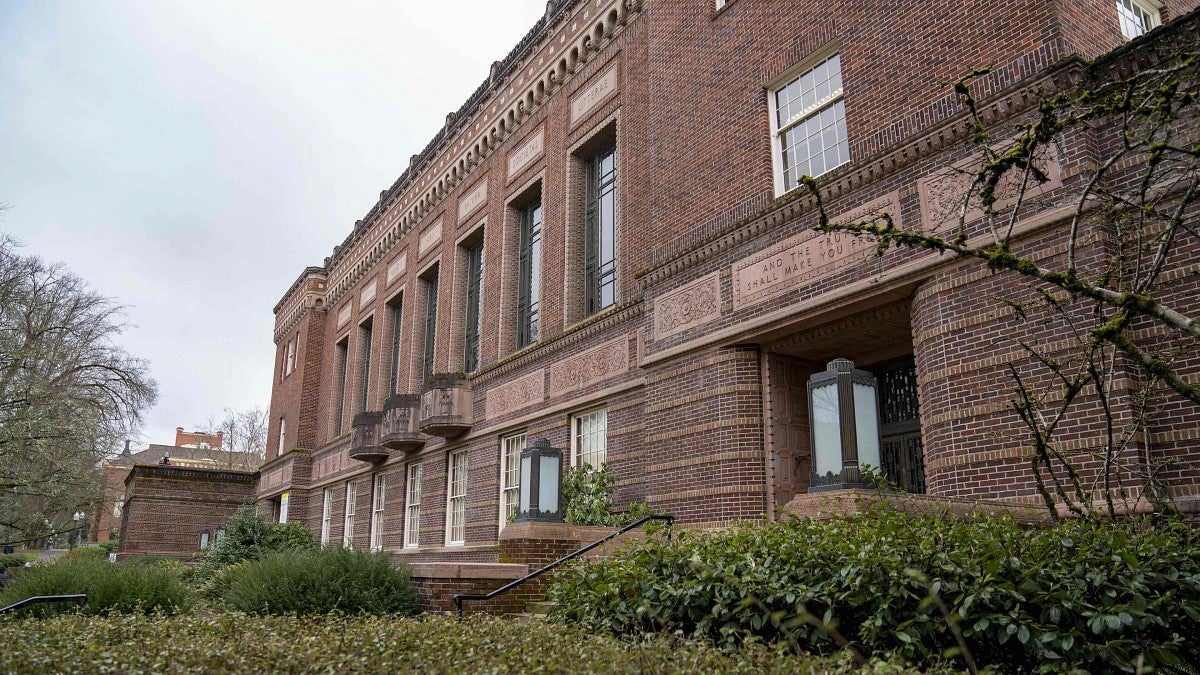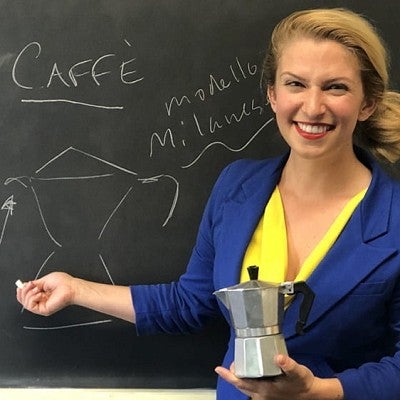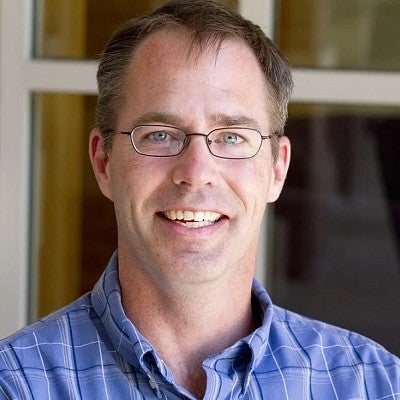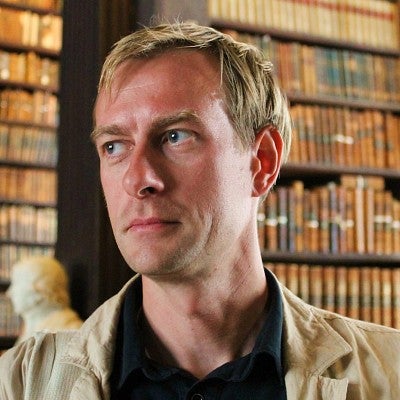
Three College of Arts and Sciences faculty members received $60,000 in National Endowment for the Humanities grants to support their research.
The NEH grants support diverse CAS research, including the use of data in everyday life, coffee history during Italian fascism, and research on icebergs and society. The awards went to Professor Mark Carey (Department of Geography), Assistant Professor Diana Garvin (Department of Romance Languages) and Colin Koopman (Department of Philosophy).

Fascism and coffee beans
Five years ago, Garvin was touring the Wolfsonian Museum in Miami when she saw an interwar appliance that sparked a research idea: an Art Deco espresso machine.
“I’d seen that silver shrine and those sharp edges before,” Garvin said. “Geometry and gleam marked the fascist regime’s big architectural projects, like train stations and hospitals.”
But that espresso machine inspired Garvin to shift away from public projects and examine how fascism shaped cafes, studying how intimately food and power are connected.
Her upcoming book, The Bean in the Machine, supported by the NEH grant, will chart the history of Italian coffee culture, from bean to machine. In the book, she’ll follow developments in Italian immigration and colonization from Brazil, Ethiopia, and Eritrea to the Roman metropole.

“The Bean in the Machine tells the untold story of imperial aggression and local resistance,” Garvin said. “By the book’s end, a reader will understand why she can as easily order a macchiato in Eugene as she can in Milan.”
Icebergs and population
Through Carey’s Glacier Lab, he and his team of researchers are studying icebergs and glaciers, including disasters in the Andes and runoff in the Himalayas.
With the support of the NEH grant, Carey and his team will research and write a book that explores the history of “Iceberg Alley,” an economically important area of the North Atlantic Ocean where icebergs drift south from the Arctic. It’s an area that has become central to many international industries.
We are our data
Every day, personal data is used in some way by someone, whether it’s a social media company, a health company, or a governmental organization for public policy.
Koopman’s upcoming book, Data Equals, examines how—in an era where this data is used for decision-making—people can become equals in a democratic society.
“We are our data because we live so much of our lives through our data (this was the point of my previous book, How We Became Our Data),” Koopman said. “But how do we maintain our equal relations with one another in that kind of context? How do we become one another's ‘data equals’?”

Data Equals is part of a public conversation surrounding, data ethics, artificial intelligence, and algorithmic fairness, Koopman said. Following the path of the internet’s development, tech companies that rely on data for their products are advocating for less regulation. Koopman said he’s not trying to approach the subject with the intent of a policy paper, but his book could provide people with a new lens.
“Coming at these pressing matters through the lens of philosophy and the humanities offers both a different angle of approach and more flexibility of thought,” Koopman said.
For this project, Koopman also received the 2023 Presidential Fellowship in Arts and Humanities.
Public philosophy like Data Equals may be conceptual, but it’s also collaborative, Koopman said. His project is part of a larger community of inquiry that aims to reimagine ideals of democratic equality in the face of technological innovation. The work of public philosophy and public humanities may be conceptual, but it can still cause a pause in thinking.
“It stills those who were running full force ahead without seeing what's right beside them. And sometimes when they stop, scales fall from their eyes. New things, new objects, new possibilities appear as if out of nowhere,” Koopman said. “That kind of impact is what everyone who works in the public humanities thinks is important, especially in the context of a society that is deeply malformed by staggering inequality.”
—By Henry Houston, College of Arts and Sciences
